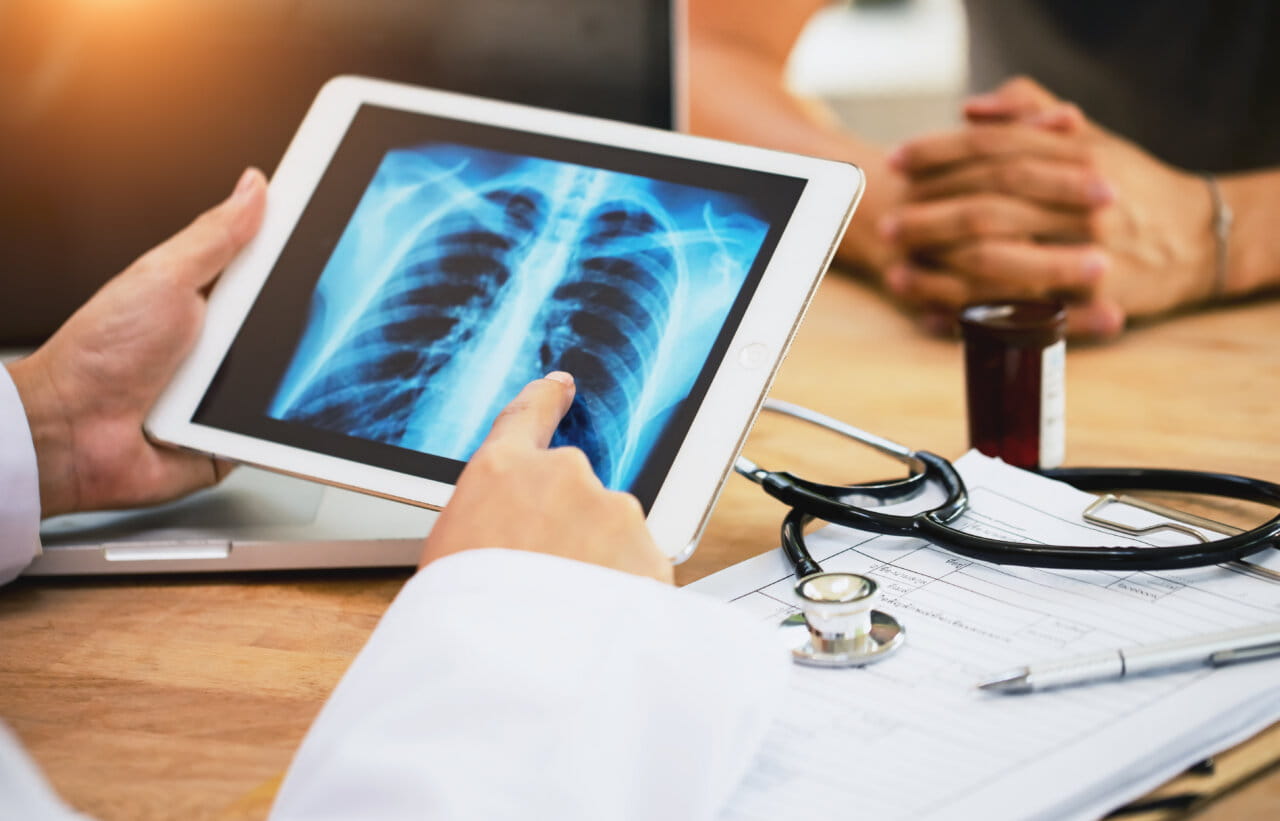Diet and Lung Cancer

Experts believe that a proper diet can play a role in preventing or fighting lung cancer. Research continues on diet and lung cancer, and the “proper” lung cancer diet differs based on a person’s overall health picture, but it’s encouraging that nutrition may play a positive role in addressing the disease.
Foods That Help Prevent Lung Cancer
Most people have heard that smoking greatly increases the risk of lung cancer and that quitting can help prevent the disease. However, both smokers and non-smokers can develop lung cancer, which is one of the leading causes of cancer deaths in the U.S. Consequently, everyone should take steps to decrease their lung cancer risk. One way to do that is to eat foods that prevent lung cancer.
Foods that make up a lung cancer prevention diet include:
● Red peppers. The plant-based chemical capsaicin has been shown to suppress the development of lung cancer in research mice, possibly by promoting apoptosis, which is a process in which abnormal cells are eliminated from the body.
● Apples. Experts believe that a high intake of flavonoids, which are plentiful in apples, is associated with a lower lung cancer risk.
● Green tea. Green tea not only shows promise in decreasing lung cancer risk but may play a similar role with other types of cancer. It’s important to note that adding cream or milk to green tea may offset the positive effect, as dairy products can bind to important chemical compounds and inhibit their function.
● Chicken. Studies indicate that eating a diet high in poultry may significantly decrease lung cancer risk.
● Garlic. Especially in its raw form, garlic is believed to have anticancer effects. Mincing garlic and letting it sit for a few minutes before adding it to your food can enhance the protection it provides.
● Fish. Eating fish produces a number of health benefits, including a notable decrease in lung cancer risk.
● Spinach. Folate is a vitamin that’s been found to lower the risk of lung cancer, and spinach is rich in it.
● Onions. Onions are a source of a compound called quercetin. Studies have shown that higher consumption of quercetin translates to lower lung cancer risk.
These are just some of the foods that help prevent lung cancer.
Foods That Help Fight Lung Cancer
If you’ve been diagnosed with lung cancer, what you eat can help you fight the disease effectively, both by supporting cellular-level activities and helping you keep your energy up. What you don’t eat is important as well. In other words, there are both lung cancer-fighting foods and lung cancer foods to avoid.
Patients with lung cancer should typically include the following foods that help fight lung cancer in their diet:
● Protein-rich foods including lean meats like chicken, turkey and fish, low-fat milk, yogurt and cheese, beans, nuts and soy foods, which are important for cell and tissue repair
● Fruits and vegetables, which contain cancer-fighting antioxidants
● Whole grains such as whole-wheat bread, oatmeal, brown rice, and whole-grain pasta, which are good sources of fiber and contain carbohydrates as an energy source
● Healthy fats like avocados, nuts and olive oil, as the body needs fat for energy and cell growth
Patients with lung cancer should generally avoid the following foods:
● Greasy, fried and fatty goods, which don’t promote good health
● Sweets like candy, desserts, and soda, as these foods tend to replace healthy foods
● Alcohol, which can have a negative impact on the immune system and cause dehydration
Lung Cancer Diet: More Important Tips
In addition to working with your doctor and dietician to develop a lung cancer diet that’s appropriate for you, you should keep these considerations in mind:
● Eat frequent small meals rather than fewer large meals, as this can ensure you get the proper nutrition while avoiding nausea.
● Maintain a healthy weight, as cancer treatment can cause unintended weight loss.
● Be conscious of food safety so you don’t tax your immune system by making it fight off foodborne illnesses.
● Drink plenty of water, as proper hydration helps the body’s systems function properly.
● Talk with your care team before taking vitamins or supplements to learn how they’ll affect your treatment.
The connection between diet and lung cancer is one you can use to your advantage, as you take action against the disease.
Learn More About Lung Cancer from Baptist Health
Learn more about lung cancer treatment and causes from Baptist Health. Take a Health Risk Assessment (HRA) questionnaire to estimate your personal health risk and identify your risk factors for lung cancer.



